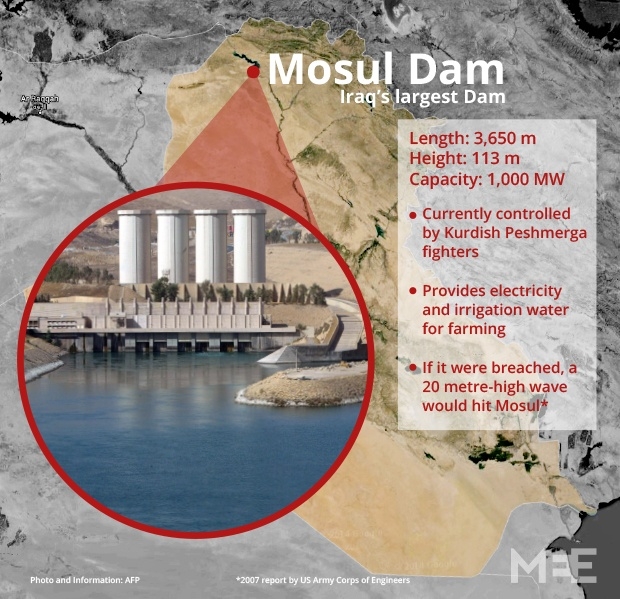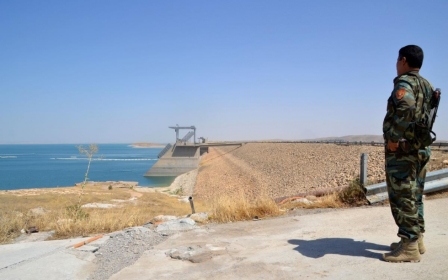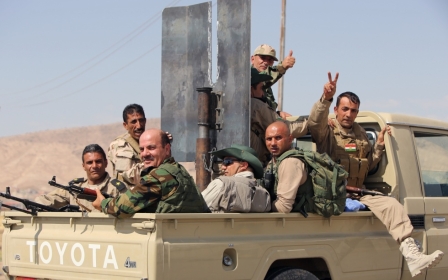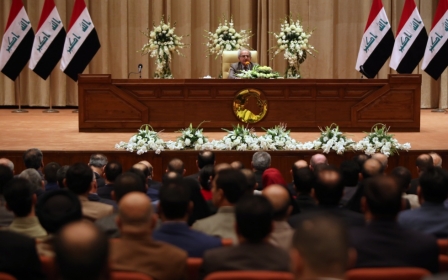Obama confirms capture of Mosul dam, vows 'long term' IS strategy
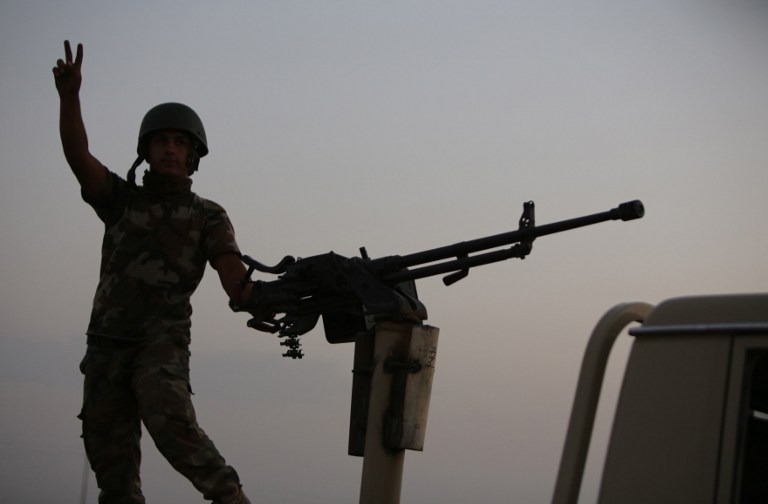
Kurdish fighters, backed by Iraqi forces and a new wave of US air strikes on Monday, recaptured a major dam outside of Mosul, President Barack Obama confirmed late Monday.
Reports also emerged that Kurdish fighters had pushed Islamic State militants out of Tel Skef, a town near the dam, and were holding their positions early Tuesday.
Securing the dam was the biggest prize yet clawed back from the so-called "Islamic State" since it launched a major offensive in northern Iraq in June, sweeping aside Iraqi security forces.
US military aircraft have carried out 35 air strikes against Islamic State militants in Iraq over the past three days, destroying more than 90 targets, including nine IS positions and eight vehicles around the dam, the Pentagon and US Central Command said.
The strikes marked the most intensive US bombardments of IS positions since they began on 8 August.
Obama said last week that the siege of the Yazidi civilians, the motivation for US airstrikes earlier this month which drew the country back into Iraq after withdrawing in 2011, had been broken. But strikes have only intensified as US-backed Kurdish and Iraqi forces try to secure the key dam.
"Iraqi and Kurdish forces took the lead on the ground and performed with courage and determination," Obama said, warning that the dam would have devastated cities downstream had it been breached.
Long-term strategy
Obama also said late Monday that the US has embarked on a long-term mission to defeat the Islamic State militant group that has seized territory in Syria and Iraq over the past year.
"We will continue to pursue a long-term strategy to turn the tide against ISIL by supporting the new Iraqi government and working with key partners in the region," Obama said, using another acronym by which the group is known.
The Islamic State militants, who have declared a "caliphate" in a region straddling the Iraq-Syria border, also came under attack in their Syrian stronghold of Raqqa by Syria's air force for a second straight day.
Some analysts have said that without a plan for addressing the group's stronghold in Syria, the US airstrikes in Iraq will do little to curb the group's expansion.
"The west and European governments are facing [IS] through a very narrow Iraq lens. Ultimately, that's unsustainable," Julien Barnes-Dacey, a senior policy fellow at the European Council on Foreign Relations, told MEE. "It is going to have to result in decision on Syria."
While Washington and London hailed the breakthrough and promised more support, Pope Francis sounded a note of caution, calling for collective action through the United Nations.
"In these cases, where there is an unjust aggression I can only say that it is legitimate to stop the unjust aggressor," he told reporters on Monday, returning from a trip to South Korea. "I underscore the verb 'to stop'. I am not saying 'bomb' or 'make war', but stop him (the aggressor). The means by which he can be stopped must be evaluated. Stopping the unjust aggressor is legitimate."
The Pope said he had considered visiting northern Iraq to offer his support to refugees, but had decided against the timing of a trip now and may visit in the future.
In London, Prime Minister David Cameron said Britain remained open to "supplying equipment" for the fight against Islamic State.
However he told a meeting of his government's emergency committee Cobra that "this is not about getting dragged into a war in Iraq, we will not be putting combat forces on the ground", a Downing Street spokesperson said.
New MEE newsletter: Jerusalem Dispatch
Sign up to get the latest insights and analysis on Israel-Palestine, alongside Turkey Unpacked and other MEE newsletters
Middle East Eye delivers independent and unrivalled coverage and analysis of the Middle East, North Africa and beyond. To learn more about republishing this content and the associated fees, please fill out this form. More about MEE can be found here.


